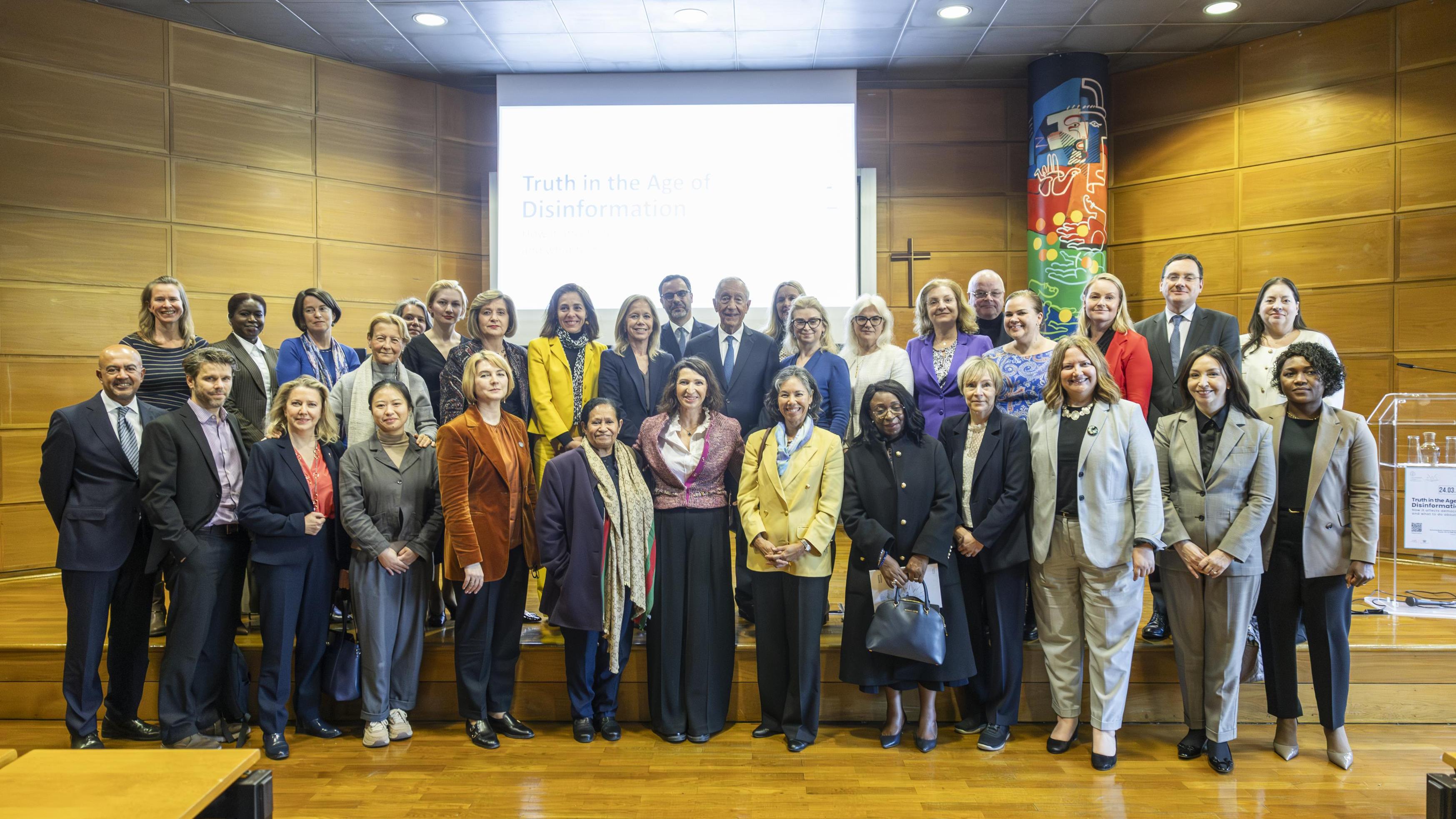
"Universities are places that defend the truth, under any circumstances," said Isabel Capeloa Gil, Rector of the Portuguese Catholic University, at the conference on “Truth in the Age of Disinformation”, held at the Catholic University on 24 March.
According to the President of Católica, “disinformation starts with the manipulation of language”, hence, the importance of how we use language. “Fact based science is vital to our common house”.
Élise Racicot, Canadian Ambassador to Portugal, and President of the Association of Women Ambassadors, also recognized the importance and urgency of this debate, as “It’s a universal truth that disinformation impacts our democracies”.
Nelson Ribeiro, Vice-Rector of Universidade Católica, also highlighted the fundamental role information plays in every regime. “Used to mold people’s reality, influencing how citizens vote and how they accept policies that go against their own interests and those of their communities”.
Acknowledging this reality, the President of the Republic, Marcelo Rebelo de Sousa, offered some reflections and actions regarding the future.
“We need to define collective responses” to contradict disinformation, and this necessarily means we will need to mobilize the European union and other democratic allies “to study and shield democracy”. The path to a free and sustainable use of digital platforms, also requires the promotion of “digital literacy”. In the media, we will need to “guarantee the conditions for free and strong journalism”.
The conference, organized by AWA and Universidade Católica Portuguesa, explored the impact of disinformation on democracies, including the growing effects of AI and technology, with the participation of the speakers, Alina Bargoanu, Member of the Advisory Board of the European Digital Media Observatory, Jeta Xharra, Director of the Office of the Balkan Investigative Reporting Network, Simon Thibault, University of Montreal and Shenglan Zhou, Universidade Católica Portuguesa.
The second panel, composed by Minna-Liina Lind, Assistant Secretary of State for Global Affairs, Ministry of Foreign Affairs, Maria Kucherenko, Director of Russian Studies, Analytical Department, Come Back Alive Initiatives Centre, Pedro Calado, Calouste Gulbenkian Foundation and Jessica Roberts, Universidade Católica Portuguesa, presented possible solutions and stategies on to tackle the growth of disinformation.


